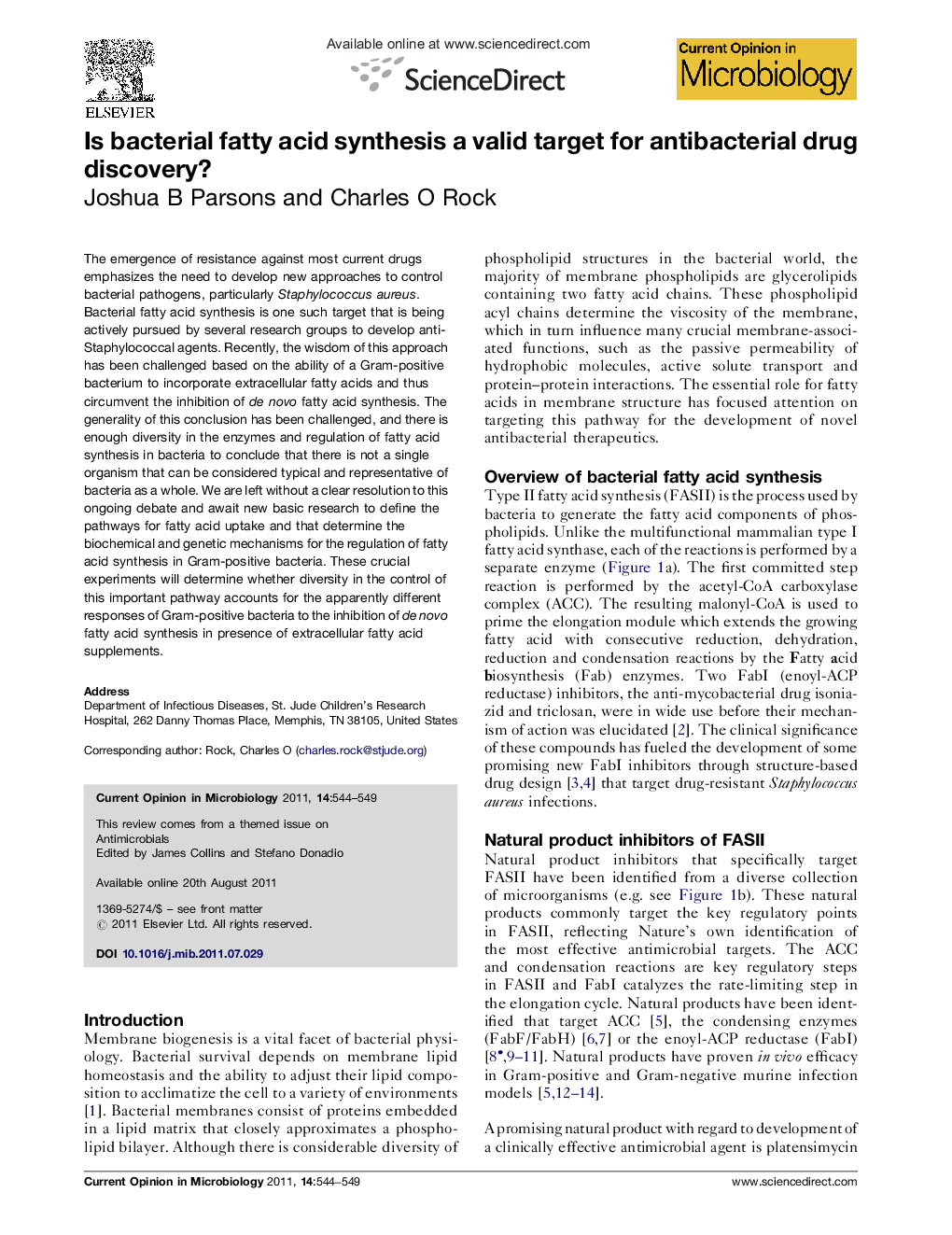| Article ID | Journal | Published Year | Pages | File Type |
|---|---|---|---|---|
| 3399208 | Current Opinion in Microbiology | 2011 | 6 Pages |
The emergence of resistance against most current drugs emphasizes the need to develop new approaches to control bacterial pathogens, particularly Staphylococcus aureus. Bacterial fatty acid synthesis is one such target that is being actively pursued by several research groups to develop anti-Staphylococcal agents. Recently, the wisdom of this approach has been challenged based on the ability of a Gram-positive bacterium to incorporate extracellular fatty acids and thus circumvent the inhibition of de novo fatty acid synthesis. The generality of this conclusion has been challenged, and there is enough diversity in the enzymes and regulation of fatty acid synthesis in bacteria to conclude that there is not a single organism that can be considered typical and representative of bacteria as a whole. We are left without a clear resolution to this ongoing debate and await new basic research to define the pathways for fatty acid uptake and that determine the biochemical and genetic mechanisms for the regulation of fatty acid synthesis in Gram-positive bacteria. These crucial experiments will determine whether diversity in the control of this important pathway accounts for the apparently different responses of Gram-positive bacteria to the inhibition of de novo fatty acid synthesis in presence of extracellular fatty acid supplements.
► Bacterial lipid synthesis is an appropriate focus for drug discovery in many organisms. ► Fatty acid synthesis inhibitors may not be effective against some Gram-positive bacteria. ► Bacterial diversity means it will be difficult to design an inhibitor against all bacteria. ► Targeting the Gram-positive acyltransferases holds promise for inhibitor development.
